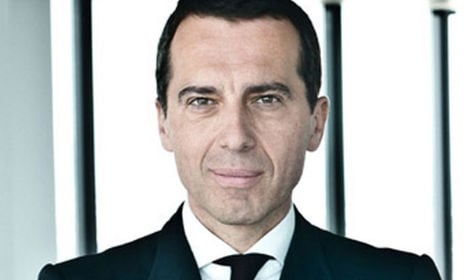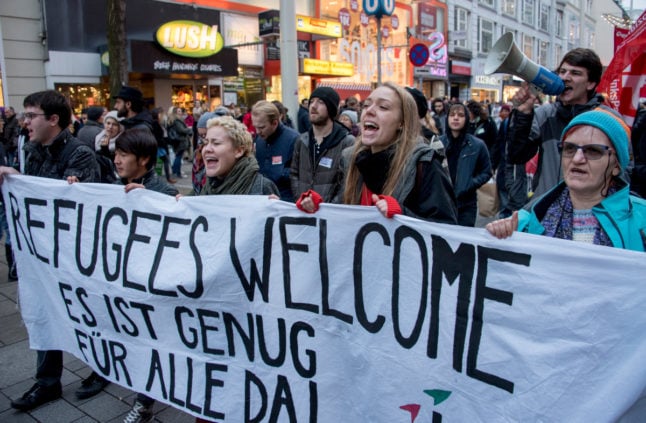The 50-year-old, renowned for his glowing business achievements and snappy dress sense, is due to be sworn in by President Heinz Fischer at 1500 GMT.
Kern replaces fellow Social Democrat Werner Faymann of the SPÖ party who threw in the towel on May 9 after a string of poor election results.
The new leader faces the major challenge of uniting a fractious SPÖ and smoothing over tensions with its coalition partner, the conservative People's Party (ÖVP).
He also has to convince Austrians unhappy about the arrival of migrants and rising unemployment to vote for his party at the next scheduled elections in 2018.
“The task before Kern is Herculean,” political analyst Thomas Hofer told AFP in a recent interview.
Headaches await
Kern's appointment comes days before a presidential runoff vote, pitching Norbert Hofer of the far-right Freedom Party (FPÖ) against the Green-backed candidate Alexander van der Bellen on May 22.
In the first round last month, Hofer comfortably beat his rival by 35 percent to 21 percent.
Meanwhile the SPÖ and ÖVP were knocked out of the race with just 11 percent. The dismal performance means that for the first time since 1945, the president will not come from one of the two main parties.
This heralds the risk of the new head of state taking advantage of some of the president's never-before-used powers, such as firing the government.
Mirroring trends elsewhere in Europe, Austria's main parties have been losing voters for years while the FPÖ now consistently scores more than 30 percent in opinion polls.
This means the SPÖ and ÖVP could fall short of being able in 2018 to re-form their “grand coalition”. In the last election three years ago, they only just scratched together a majority.
Kern's biggest headache will be to decide whether to ditch the SPÖ's 30-year-old taboo on cooperating with the FPÖ, dating back to when the late, controversial Joerg Haider became leader of the right-wing party.
He also needs to revitalise the SPÖ's deadlocked coalition with the ÖVP and agree structural reforms to get Austria's economy, faltering of late, moving again.
'Glaring deficits'
Kern, dubbed a “pinstripes socialist” by German broadcaster ARD, grew up in a working class district of Vienna as the son of an electrician and a secretary.
He joined the SPÖ when he was young, climbing up the ranks before moving to an energy firm in 1997 and to national railways company ÖBB in 2010. There, the father-of-four is widely credited with a turnaround and successfully managing the transport of immense numbers of migrants transiting through Austria in 2015.
“I've had to wipe a few tears away and comfort employees with the thought that it's not the end of the world that the boss is becoming chancellor,” Roman Hebenstreit of the ÖBB works council said when news of Kern's appointment broke last Friday.
But whether Kern can heal the SPÖ remains to be seen. His positions on key policy areas are vague, although he is thought to lean more to the right on economic issues.
FPÖ leader Heinz-Christian Strache said that Kern's performance at the railways company during the migrant crisis “showed that he actively supported Faymann's people-smuggling policy”.
“If Kern really wants to end the paralysis and the glaring deficits that this country is suffering from, then he should clear the way for new elections,” Strache said last week.



 Please whitelist us to continue reading.
Please whitelist us to continue reading.